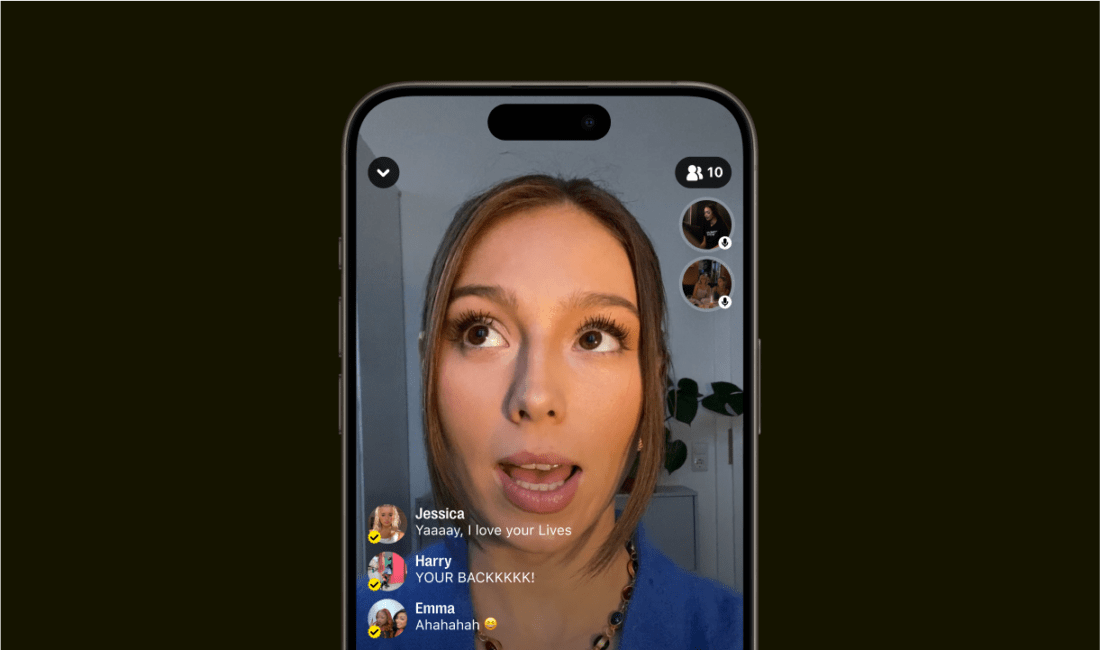Yubo offers students a unique way to meet new people, engage in meaningful conversations, and connect over shared interests as they return to school.

It’s that time again when many Generation Zers are gearing up for new classes, experiences, and friendships. As students return to school, Yubo offers several advantages for expanding their social circles. Unlike traditional social media apps prioritizing content consumption and maintaining existing connections, Yubo emphasizes creating new friendships through interactive features. It enables users to meet new people, join live video chats, and form friendships based on shared interests.
It also lets users meet peers beyond their immediate surroundings, connecting with students from different schools, cities, or countries. Users can find study buddies by joining or creating rooms dedicated to specific subjects or courses. The platform provides an opportunity to practice social skills by engaging in low-pressure conversations with others.
Additionally, it features a swipe function, allowing users to find potential friends. Interest-based rooms provide group chats centered around specific topics or preferences, while games and challenges offer interactive elements to break the ice and engage with others.
“Yubo is a space where anyone can belong,” said CEO Sacha Lazimi. “We socially inspire and enable new generations to learn about the world and themselves.”
Many users have shared how Yubo helped them transition to new schools or maintain friendships across distances. One college-age user based in the United Kingdom shared, ‘Yubo made it easy for me to find study groups and classmates when I switched schools as part of my university’s travel abroad program. I’ve even made friends I now talk to daily.”
The student makes a good point that In addition to fostering friendships, the live social discovery app serves as a collaborative tool for students looking to excel academically. Its ability to create rooms dedicated to specific subjects allows users to exchange notes, prepare for exams, and learn from peers across the globe.
The History of Yubo and Live Social Discovery
In 2015, Yubo was founded in Paris by Lazimi, Jérémie Aouate, and Arthur Patora. They aimed to address what they perceived as a lack of genuine connections in existing social networks.
The concept of live social discovery emerged as a response to the increasingly passive and commercialized nature of traditional social media platforms. While established networks focused on maintaining existing connections or following influencers, Yubo sought to facilitate new friendships and real-time interactions.
The live social discovery app gained significant traction in its first year, accumulating 10 million sign-ups. The platform initially attracted users primarily between the ages of 13 and 17. As of 2024, the app boasts over 80 million users across more than 140 countries. It continues to evolve, with recent updates reflecting a more mature aesthetic to align with its aging user base. “Our goal is to go as big as we can,” Lazimi said during an interview.
To date, Yubo has raised substantial funding, including a $47.5 million Series C round in 2020, enabling the company to expand its team, enhance its technology, and grow its user base.
“This growth wouldn’t have been possible without funding,” said Lazimi. “It has enabled us to reach new milestones as we develop our technology, as well as give us the confidence and financial backing to support our ambitions in becoming a world-leading social platform.”
Getting started with the live social discovery app is straightforward. The process begins with downloading the app, which is available on iOS and Android devices. Users then create profiles by setting up an account with essential information and interests. Once the profile is established, the platform offers various ways to engage.
Generation Z’s Demand for Authenticity
Generation Z, born between the late 1990s and early 2010s, is social media savvy. Morning Consult, a data-decision intelligence company, reports that 35% of Gen Zers spend over four hours daily on social media.
The first truly digital generation values authenticity, inclusivity, and meaningful connections. Yubo caters to Gen Z’s preferences in several ways and aligns with its preference for immediate, genuine communication.
Safety is a top priority for the live social discovery app. With verification methods in place, users must be 13 or older to join. A team of safety experts monitors the platform around the clock while artificial intelligence scans visual, textual, and audio content to flag potential issues. The app provides easy-to-use features for reporting suspicious behavior, and individuals can block or mute other users at their discretion.
Lazimi stated, “We want to continue making Yubo the safest place for users to meet each other.”
Additionally, the platform’s monetization model relies on paid features rather than advertisements, creating a more user-centric experience. “This model means we will never sell our users’ data to generate revenue, and users don’t come to our platform to make money,” explained Lazimi. “Users have access to a free account, but they can buy premium features. We think this model is the future of any social platform if you want to monetize today because if you monetize through ads then you compete with the big players such as Facebook and Instagram, who have a lot of users.”
The live social discovery app’s approach to social networking represents a shift from the “post, like, repeat” cycle common on other platforms.
The platform’s livestreaming rooms typically feature high user participation, with an average of four to five people actively engaging in discussions. This level of engagement contrasts with the often passive consumption model seen on other social media platforms.
As the crowded field of social media continues to evolve, platforms like Yubo that prioritize genuine connections and real-time interactions are gaining traction, especially among younger users.
“We are proud of our community. Our users are non-judgmental and focus on having meaningful conversations on topics they care about while enjoying themselves. We work to maintain this through prioritizing safety as well as educating users on digital literacy,” stated Lazimi.




